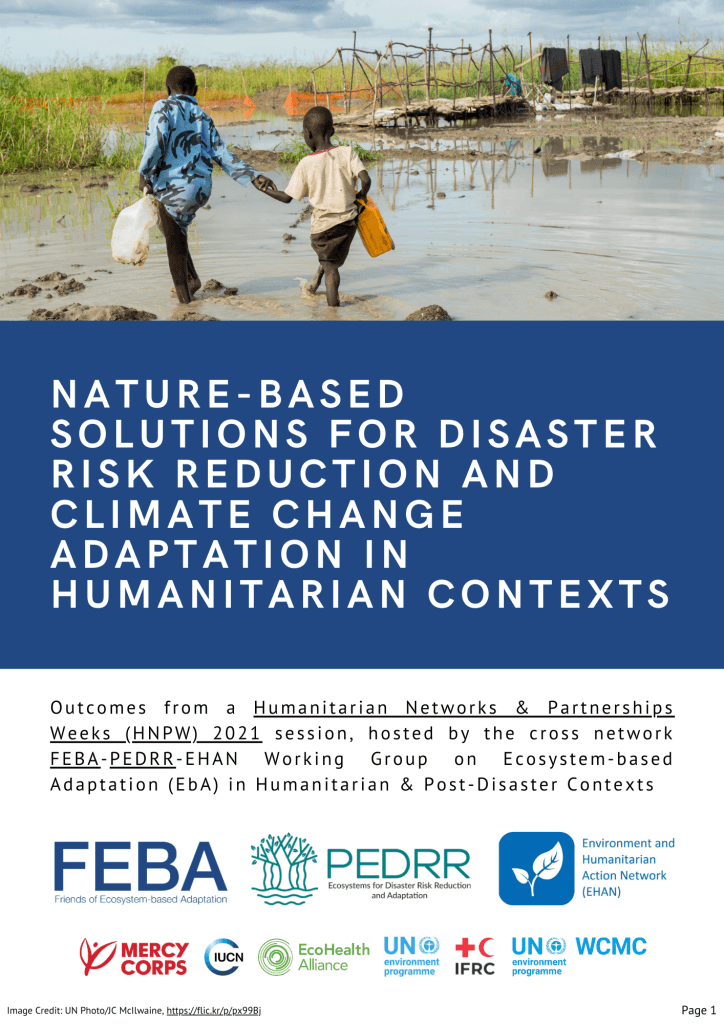L' Semaines des réseaux et partenariats humanitaires (HNPW) 2021 s'est déroulé du 19 avril au 7 mai 2021. La FEBA, Partenariat pour l'environnement et la réduction des risques de catastrophe (PEDRR), De l'environnement et de l'Action Humanitaire Réseau Le groupe de travail inter-réseaux (EHAN) sur l'EbA dans les contextes humanitaires et post-catastrophe a organisé une session conjointe au HNPW 2021 sur le thème de La Nature des Solutions pour la Réduction des Risques de Catastrophe et l'Adaptation au Changement Climatique dans des Contextes Humanitaires.
Les services écosystémiques, la santé et la protection de l'environnement ainsi que les catastrophes naturelles sont souvent négligés dans les crises humanitaires. La dégradation des écosystèmes et de leurs services exacerbe les risques pour les populations face aux aléas et aux impacts du changement climatique, réduisant l'accès à des ressources naturelles sûres et suffisantes nécessaires aux moyens de subsistance et compromettant les gains de développement à long terme. Parallèlement, les facteurs environnementaux et climatiques jouent un rôle essentiel dans le développement et la trajectoire des crises complexes. Le groupe de travail inter-réseaux sur l'adaptation écosystémique dans les contextes humanitaires et post-catastrophe, présidé par Mercy Corps et l'UICN, réunit les parties prenantes des réseaux mondiaux FEBA, EHAN et PEDRR, pour aborder de manière collaborative la manière dont les solutions fondées sur la nature et la protection de l'environnement peuvent être un élément essentiel et une stratégie de l'aide humanitaire et du développement. Au cours de cette session, une table ronde de participants de tous les secteurs des solutions fondées sur la nature pour la réduction des risques de catastrophe a exploré la contribution de l'adaptation fondée sur les écosystèmes au développement de solutions rentables, novatrices et durables dans les zones touchées par les crises et au renforcement de la résilience immédiate et à long terme. Des discussions interactives en petits groupes ont suivi, explorant différents thèmes et produits livrables (par exemple, des notes d'orientation, une boîte à outils et des conseils) du programme d'apprentissage du groupe de travail et favorisant la résolution collective des problèmes et le partenariat.


